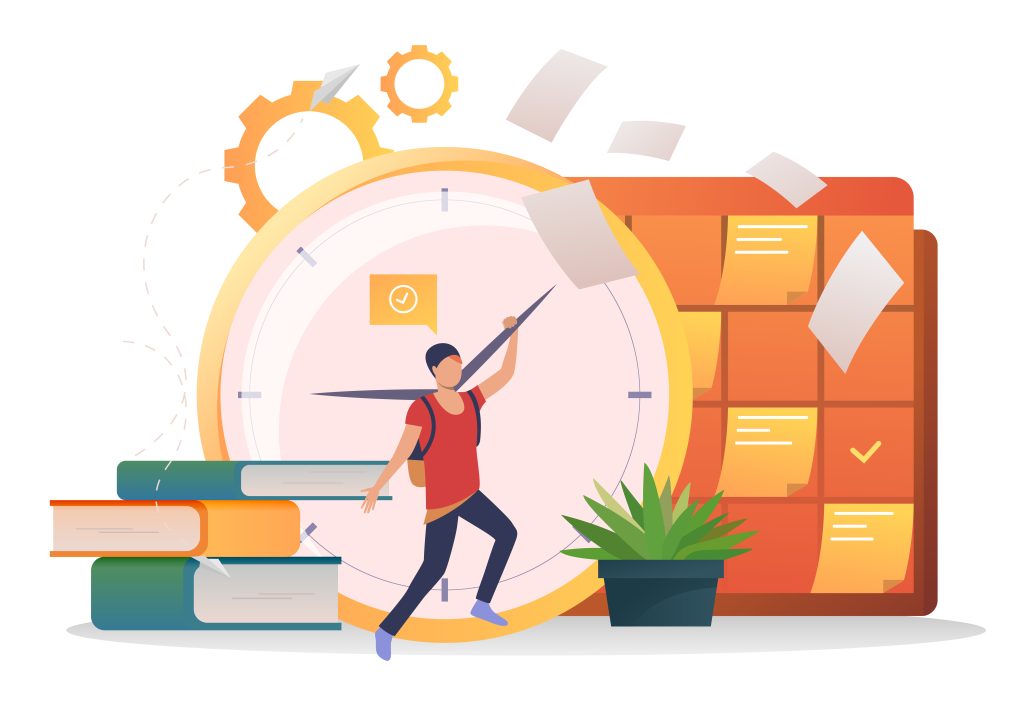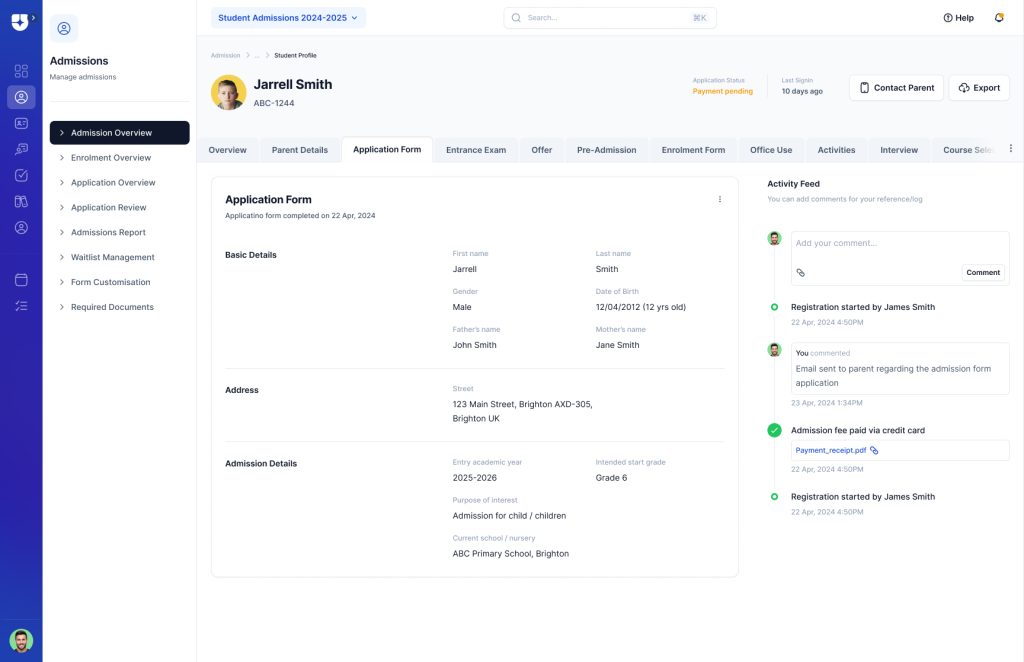Introduction
Ever wondered why some students ace exams while others who are equally intelligent consistently fall behind? The difference often isn’t talent, but the importance of time management for students. Did you know that over 78% of students admit they struggle with time management, often finding themselves cramming before exams or missing deadlines? For teachers, this isn’t just a student problem; it’s a classroom challenge that directly affects focus, confidence and academic outcomes. Think about the time your students rushed through an assignment, not because they lacked ability, but because they lacked the skills to manage their study time effectively.
That’s where this guide comes in. In this blog, we’ll explore classroom strategies to enhance study skills & time management that you as an educator, can apply right away. From proven study techniques to time-blocking exercises, you’ll discover methods backed by learning science and tailored for real classrooms.
By the end, you’ll walk away with practical tools to boost student success, reduce stress and turn time management from a struggle into a strength. At iScuela, we believe that when teachers are empowered with the right strategies and systems, students thrive not through more pressure, but through smarter support.
Why Time Management Matters in Students’ Lives
Importance of Time Management for Students
For students, time is the one thing they can’t rewind or replace, every hour truly counts. The importance of time management for students lies in helping them use their hours wisely. When students plan their day, they reduce wasted time, improve their focus and get more done with less stress. The impact of poor time management is striking, with 54% of students reporting increased stress levels as a direct result.
The Role of Time Management in Student Life
Effective time management directly impacts:
- Academic Pressure: Students who set study schedules are more likely to retain information and perform well in exams.
- Reduced Stress: A well-organized routine prevents last-minute cramming and panic.
- Balanced Lifestyle: Time management ensures space for academics, hobbies, sports and social life
This shows how critical the role of time management in students life really is. It’s not just always about school, it’s about building a healthy rhythm.
Significance Beyond the Classroom
The significance of time management for students doesn’t stop at school. It prepares them for the real world. Skills like prioritization, planning and self-discipline carry forward into:
- College success: handling multiple assignments and deadlines.
- Career readiness: meeting targets, collaborating with teams and staying organized
- Personal growth: building confidence and resilience
Mastering time management today sets students up for success tomorrow in academics, careers and life.
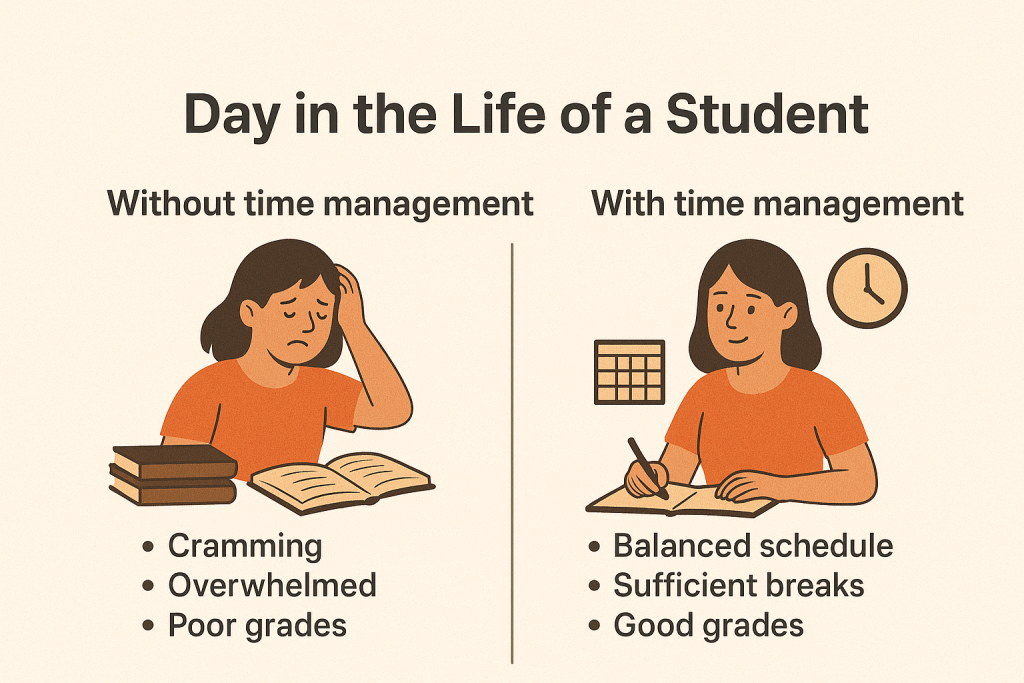
Time Management in Schools: Strategies, Tools, and Real-Life Insights for Principals, Teachers, and Leaders – Learn More About How to Reclaim Time and Boost Student Success
Common Challenges Students Face with Time & Study Skills
1. Procrastination & Poor Scheduling
One of the biggest barriers to productivity is procrastination. Many students delay tasks until the last minute, which leads to rushed work and unnecessary stress. Without proper scheduling, assignments and study sessions often pile up, making it hard to stay consistent.
2. Digital Distractions
From Instagram notifications to endless YouTube videos, digital distractions are a constant struggle. Research shows that 50% of teens feel addicted to their mobile devices. This constant multitasking lowers focus, reduces memory retention and wastes valuable study hours.
3. Multitasking Myth
Students often believe they’re saving time by multitasking. In reality, switching between tasks increases errors and reduces efficiency. Instead of completing one task well, they end up doing several halfway.
4. Lack of Guidance in Classrooms
Not all students receive structured support on how to organize their studies. Without teacher guidance, they may not learn how to manage time for study daily, manage their schedules or set realistic goals.
5. Why Overcoming These Matters
These challenges highlight why students need proven strategies on how to improve time management skills for students. By addressing procrastination, distractions and poor structure, teachers can help learners develop focus, confidence and lifelong study skills.
Classroom Strategies to Enhance Study Skills & Time Management
Helping students develop strong study habits and time management skills requires consistent classroom strategies. When teachers introduce structured planning, active learning and smart use of technology, students gain tools that prepare them for both academic and lifelong success.
1. Teach Structured Planning
Students often struggle simply because they don’t know how to manage time for study daily.
Teaching structured planning can change this.
Practical steps include:
- Weekly Planners: Encourage students to plan their week, marking out homework, revision and personal time.
- Daily Study Timetables: A simple schedule with subject blocks helps them stay on track.
- Digital Tools: Apps like Google Calendar or Notion can provide reminders and reduce forgotten tasks.
According to research, Students who prioritize tasks and use study planners are 33% more likely to finish assignments on time.
2. Encourage Active Learning Techniques
Passive reading often wastes time. Instead, teachers can promote active learning strategies that make studying more effective and efficient.
Some proven techniques include:
- Note-taking & Summarization: Students retain more when they rephrase content in their own words.
- Spaced Repetition: Reviewing topics at increasing intervals boosts long-term memory.
- Mind Maps & Diagrams: Visual tools simplify complex ideas and help recall information faster.
Active learning means less time spent rereading and more knowledge retained directly improving how efficiently students use their study hours
3. Time-Blocking & Priority Setting
Students often confuse “being busy” with being productive. Teaching time-blocking and priority management can help.
- Time-Blocking: Divide the day into focused study sessions (e.g., 45 minutes of science, 15 minutes of rest)
- Eisenhower Matrix: Teach students to separate “urgent” from “important”. This prevents wasted energy on tasks that don’t add real value.
- Set Micro-Goals: Breaking big assignments into smaller steps makes them less overwhelming.
This approach answers the question of how to improve time management skills for students by giving them a simple decision-making framework.
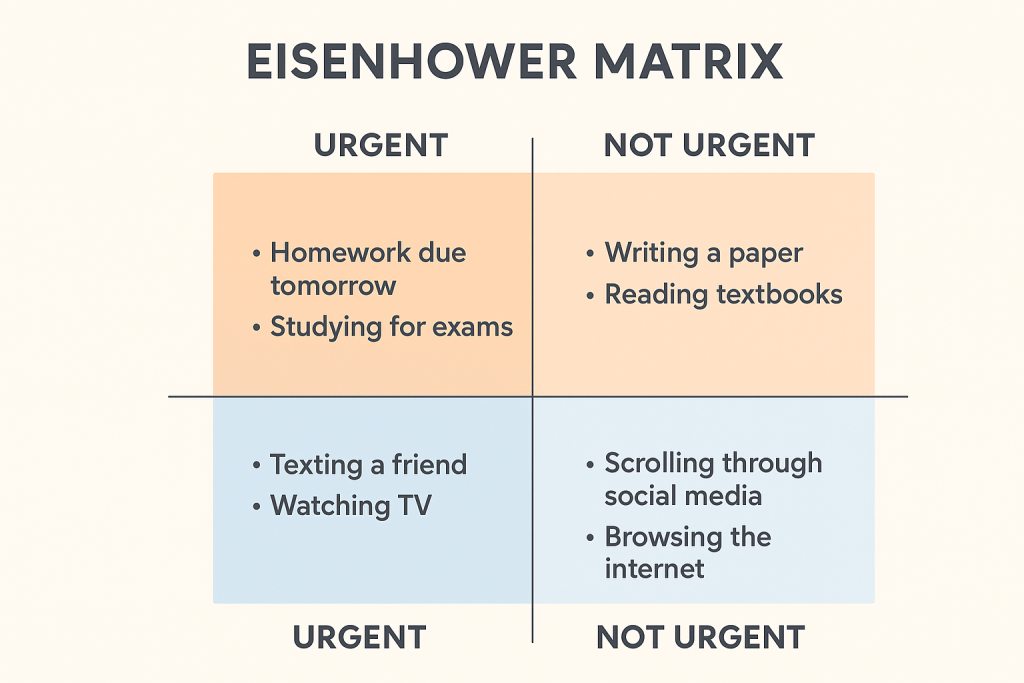
4. Promote Group Learning & Accountability
Students are more likely to stick to their study plans when they have accountability partners.
Teachers can encourage:
- Peer Support: Pair students to check in on each other’s progress.
- Study Groups: Small groups working on assignments together share responsibility.
- Classroom Buddy System: Assign “study buddies” who remind each other about deadlines.
Beyond academic benefits, group learning builds communication and teamwork skills critical for both school and future workplaces.
5. Leverage Technology & Smart Tools
In today’s digital world, technology can either drain a student’s focus with endless distractions or serve as a powerful ally that streamlines learning, builds stronger study habits and empowers better time management. Schools that use intelligent systems can guide students towards better time management.
Examples include:
- Digital Dashboards: Teachers can track assignments and deadlines, making planning easier.
- AI Tools: Adaptive learning systems help personalize study schedules based on student progress.
Automated Reminders: Push notifications for deadlines reduce forgetfulness.
Future-Ready Classroom: Platforms like iScuela OS take this further by integrating planning, tracking, and learning tools into one ecosystem. This allows teachers to manage operations and support students without juggling multiple apps. The result? Students learn not only what to study but also how to organize their time effectively.
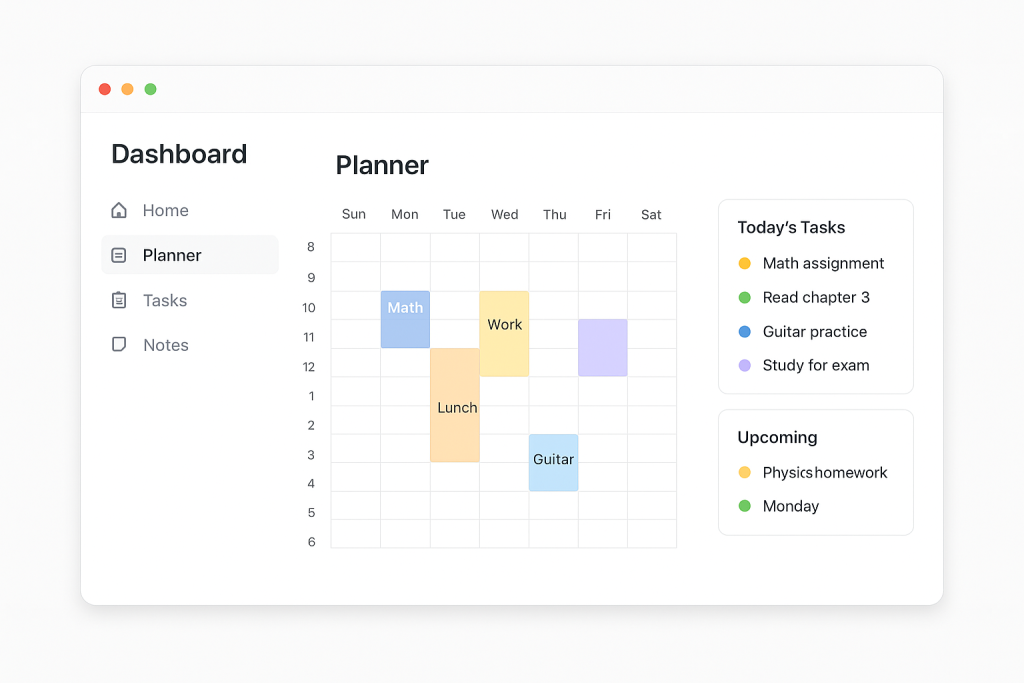
By combining these strategies structured planning, active learning, time-blocking, group accountability and smart technology, teachers can transform the way students manage their time. These methods don’t just improve grades; they create confident, organized learners who are ready for any challenge.
Practical Tips for Teachers to Reinforce Time Management
Teachers play a crucial role in helping students see the real benefit of time management for students. By modeling strategies and embedding time-focused practices into lessons, you can turn abstract concepts into lifelong habits.
1. Model Good Habits
Students learn best when they see teachers practicing what they preach.
- Share your own weekly planner with the class.
- Demonstrate how you schedule grading, lesson planning and meetings
- Show how sticking to timelines reduces stress and boosts productivity
When students see time management modeled daily, they are more likely to follow it themselves.
2. Integrate Micro-Deadlines
Large assignments often overwhelm students. Breaking them into smaller steps helps them stay on track.
- Example: Instead of “submit essay in 2 weeks,” create checkpoints for topic selection (Day 3), outline (Day 6) and draft (Day 10).
- This reduces procrastination and teaches how to improve time management for students in real-world scenarios
3. Provide Structured Feedback
Feedback isn’t just about the quality of work; it can also guide how students manage their time.
- Highlight where students rushed or spent too long
- Suggest a specific time allocation strategy (e.g., “30 minutes on research, 20 minutes on editing”)
- Encourage consistency over cramming
4. Encourage Reflection Activities
Self-awareness is the first step toward improvement.
- Ask students to keep a time-use journal for a week.
- Discuss in class: “Where did you spend most of your time?”
- Use quick polls or exit tickets to reflect on how effectively they studied.
This builds accountability and helps students connect their habits to outcomes.
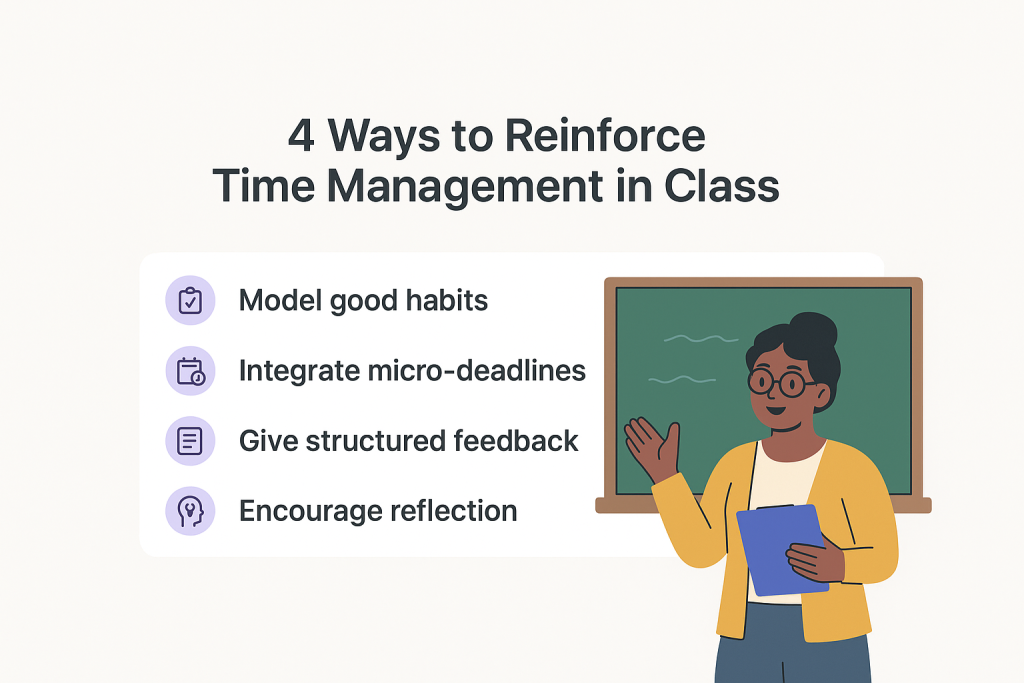
By embedding these strategies, teachers can maximize the benefit of time management for students, improving not just their grades but also their confidence, organization and readiness for future challenges.
Long-Term Benefits of Good Study Skills & Time Management
Strong study habits and consistent planning don’t just help students today they create lasting advantages that carry into adulthood. The importance of time management to students goes far beyond academics.
Academic Success
When students plan their time well, they:
- Achieve better grades through consistent study rather than last-minute cramming.
- Reduce exam stress by spreading preparation over weeks
- Build confidence as they see their hard work reflected in results
Research found that students with effective time management skills report significantly lower stress levels.
Personal Growth & Confidence
The benefit of time management for students extends to emotional well-being
- Students feel more in control of their schedules
- They develop resilience by balancing academics, sports and social life
- Confidence grows when they successfully meet goals without burning out
Career Readiness
Time management is a skill every employer values. Students who master it early are better prepared for:
- Meeting work deadlines and managing multiple projects
- Collaborating effectively with teams
- Prioritizing tasks in high-pressure environments
In short, mastering study skills and time management builds stronger learners today and more capable, confident professionals tomorrow.
Conclusion
Key Takeaway
Strong study habits and effective time management are not “extra skills” they are the foundation of academic success and lifelong achievement. By applying proven classroom strategies to enhance study skills & time management, teachers can help students:
- Earn better grades through structured planning
- Reduce stress and anxiety with realistic schedules
- Build confidence and independence as they manage their own time
Beyond the Classroom
The impact doesn’t stop at school. Students who master these habits grow into professionals who can prioritize tasks, meet deadlines and balance responsibilities effectively. In other words, time management shapes not just better learners, but also future-ready leaders.
The iScuela Advantage
At iScuela, we believe schools shouldn’t have to choose between managing operations and improving learning outcomes. Our visionary platform combines technology, AI-driven insights and white glove support helping educators focus on what matters most: student success.
Ready to take the next step? Explore how iScuela is helping schools create future-ready learners.

FAQs
How can students manage time for study daily?
Students can manage time effectively by using daily planners, breaking tasks into smaller chunks, prioritizing assignments, and setting aside dedicated study slots free from distractions.
What are some practical classroom strategies to enhance study skills & time management?
Teachers can introduce weekly planners, teach time-blocking techniques, encourage active learning methods (like note-taking and summarization), and use tools such as iScuela to guide students in building structured habits.
Why is time management important for students?
Time management helps students stay organized, reduce stress, and achieve better academic performance. It also builds habits like discipline and focus, which are essential for success in school and later in their careers.
What are the benefits of time management for students in the long run?
In the short term, students see improved grades and reduced anxiety. In the long term, they gain career readiness, efficiency, and personal growth—skills that make them confident and adaptable professionals
How can teachers help students improve their time management skills?
Teachers can model good habits, set micro-deadlines, provide structured feedback, and encourage self-reflection. Using smart tools like iScuela’s OS can also give teachers real-time insights to support students better.
